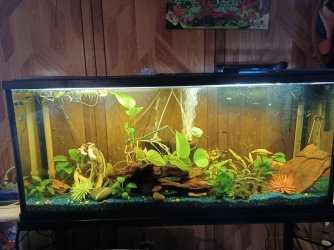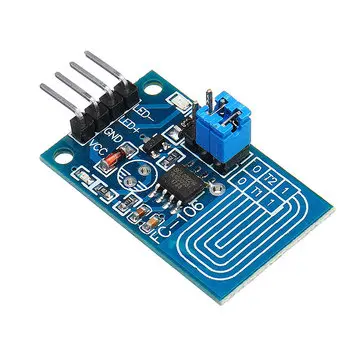Alice B
Fish Herder
somewhere in my house, maybe in my attic, there are 3 light fixtures 48 inches long with bulbs I think. Now the last time I saw them they were leaning on the dresser in my fish room. I stored the tanks outside, still need to do seals, sold one tank, and maybe a fixture with it, but I know I didn't throw those fixtures out.
I bought a 55 gallon on sale in December and it came with LED hoods. I hate the color of the light, it's yellow green. I have just cleaned up red cyanobacteria in a tank for the first time since my reef.
If I could find those fixtures I have pennplax bulbs that are heavy on red/blue and don't grow a lot of algae. I'm hunting for a used one right now until I find those. but what I see for sale is all LED. Tell me there is some LED that isn't glow in the dark chartreuse? I have a planted tank I have to have lights but I hate this.
I bought a 55 gallon on sale in December and it came with LED hoods. I hate the color of the light, it's yellow green. I have just cleaned up red cyanobacteria in a tank for the first time since my reef.
If I could find those fixtures I have pennplax bulbs that are heavy on red/blue and don't grow a lot of algae. I'm hunting for a used one right now until I find those. but what I see for sale is all LED. Tell me there is some LED that isn't glow in the dark chartreuse? I have a planted tank I have to have lights but I hate this.




